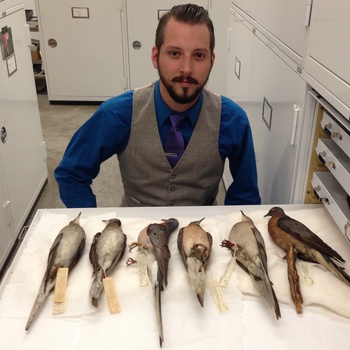How Digital Memory Is Shaping Our Future
Abby Smith Rumsey


March 29, 02016
Memory technologies from papyrus to print have given humans a unique survival advantage: allowing us to accumulate knowledge. These technologies shape our perception of history, time, and personal and cultural identity.
The capacity of our brains to remember lags far behind our capacity to generate information. Digital technology gives us an abundance of information, but creates a scarcity of attention that makes it hard for us to grasp what is important before it slips away. Unless we learn how to preserve memory in the digital age, we risk losing the traces of the past that are vital for building a future true to our commitment to democratic access to information.
Memory is not about the past, it is about the future. Historian and media expert Abby Smith Rumsey explores how digital memory, which cannot be preserved, will shape the future of knowledge and affect our survival. From March 02016.
Abby Smith Rumsey is a historian who writes about how ideas and information technologies shape perceptions of history, of time, and of personal and cultural identity. She served as director of the Scholarly Communication Institute at the University of Virginia, and worked for more than a decade at the Library of Congress. Her book When We Are No More, How Digital Memory Is Shaping Our Future (02016) looks at how human memory from pre-history to the present has shed light on the grand challenge facing our world--the abundance of information and scarcity of human attention.
Upcoming Talks
Videos

Johanna Hoffman
Speculative Futures: Design Approaches to Foster Resilience and Co-create the Cities We Need
October 12, 02022

Creon Levit
Space Debris and The Kessler Syndrome: A Possible Future Trapped on Earth
April 26, 02022

Brittany Cox
Horological Heritage: Generating bird song, magic, and music through mechanism
August 20, 02019

Elizabeth Lonsdorf
Growing Up Ape: The Long-term Science of Studying Our Closest Living Relatives
April 30, 02019

James Holland Jones
The Science of Climate Fiction: Can Stories Lead to Social Action?
January 29, 02019

Kevin Kelly, Stewart Brand, Alexander Rose
Siberia: A Journey to the Mammoth Steppe
January 22, 02019

Caroline Winterer
The Art and Science of Deep Time:
Conceiving the Inconceivable in the 19th Century
September 4, 02018

Esther Dyson
The Short Now: What Addiction, Day Trading, and Most of Society’s Ills Have in Common
July 17, 02018

Hannu Rajaniemi
The Spirit Singularity: Science and the Afterlife at the Turn of the 20th Century
July 10, 02018

Shahzeen Attari
Facts, Feelings and Stories: How to Motivate Action on Climate Change
June 26, 02018

Renée DiResta
Disinformation Technology: How Online Propaganda Campaigns Are Influencing Us
April 10, 02018

Scott Kildall
Art Thinking + Technology: A Personal Journey of Expanding Space and Time
August 15, 02017

Miles Traer
The Geological Reveal: How the Rock Record Shows Our Relationship to the Natural World
June 27, 02017

Andrew Lakoff
How We Became “Unprepared”:
Imagining Catastrophe from the Cold War to Bird Flu
May 30, 02017

Jennifer Petersen
Why Freedom of Speech Is More Than Speech:
Expressions in Media and Code
April 18, 02017

Tara Behrend
The Psychology of Surveillance:
How Being Watched Changes Our Behavior
February 28, 02017

Ben Novak
The Next Flight of the Passenger Pigeon: Engineering Nature's Engineers
September 27, 02016








































































